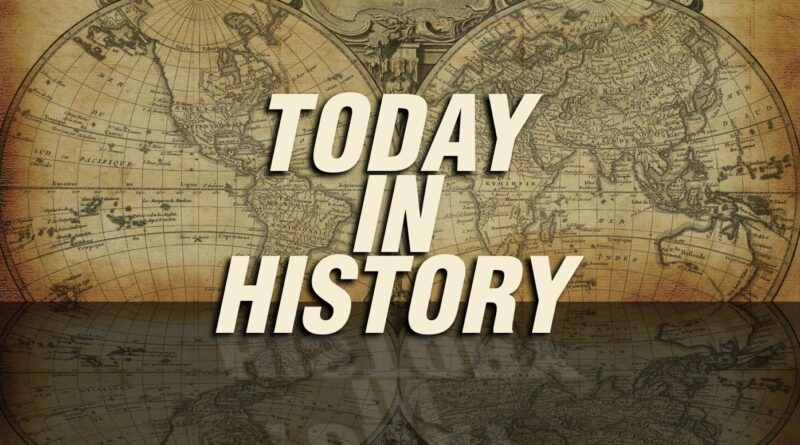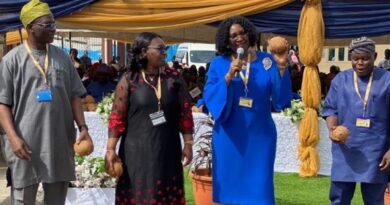February 13: This Day In History (African history).
February 13 is a day filled with moments of faith, courage, and change. It is a time when we remember people who shaped nations, defended their beliefs and fought against injustice. The sacrifices of early Christians and the struggles of African leaders for freedom highlight the strength and determination of this date.
Across the continent, this day has been marked by both successes and failures. It has seen political changes that reshaped nations, spiritual movements that strengthened faith, and cultural shifts that left lasting impacts. As we think about this day, we discover stories of strong leaders, deep devotion, and the ongoing fight for change that inspires people even today.
Here are some significant events in African history that happened on February 13:
1976—Nigerian military head of state Murtala Mohammed is assassinated:
General Murtala Ramat Mohammed was assassinated in Lagos during an attempted coup led by Lt. Col. Buka Suka Dimka. His death led to the rise of General Olusegun Obasanjo, who continued Murtala’s transition plans for Nigeria’s return to civilian rule.
303 AD—The Great Persecution of Christians under Roman Emperor Diocletian begins: Though not exclusive to Africa, this persecution severely affected Christian communities in North Africa, especially in Carthage (modern-day Tunisia). Many early Christian martyrs, including St. Felix and St. Cyprian, suffered under Roman rule.
1960—France conducts its first nuclear test in the Sahara Desert (Algeria):
France tested its first atomic bomb, codenamed “Gerboise Bleue,” in Reggane, Algeria, during the Algerian War of Independence. This test was highly controversial and contributed to anti-colonial sentiments.
See Also: See Also: February 12: This Day In History (African history).
2017—South Africa’s President Jacob Zuma survives a no-confidence motion:
Amid growing pressure and corruption allegations, Zuma survived another parliamentary vote of no confidence, demonstrating his political resilience. However, he eventually resigned in 2018.
1996—South Africa hosts the Africa Cup of Nations final:
South Africa, as the host nation, won the 1996 Africa Cup of Nations (AFCON), defeating Tunisia 2-0 in Johannesburg. This was a historic moment for the country, as it marked its return to international football following years of apartheid-related bans.
1960—South African Christian leaders denounce apartheid: Amid increasing global pressure, many Christian leaders in South Africa, including those from the Dutch Reformed Church and Anglican Church, began openly criticizing apartheid. This movement eventually gained momentum and led to the active role of Christian leaders like Desmond Tutu in the anti-apartheid struggle.
Notable Birthdays on February 13:
1818 – Frederick Douglass (African-American Christian abolitionist & preacher):
Although not African by nationality, Douglass was of African descent and strongly identified with the continent’s struggles. He was deeply influenced by Christian teachings, often citing the Bible in his fight against slavery and injustice.
1943—Joseph Ki-Zerbo (Burkina Faso, Historian & Politician):
A leading African historian and politician, Ki-Zerbo was instrumental in promoting African history from an Afrocentric perspective. He was a strong advocate for African unity and self-determination.
1968—Nii Ayikwei Parkes (Ghana, Writer & Poet):
A renowned Ghanaian-British poet, novelist, and editor, Parkes is known for works that explore African identity, language, and culture. His notable book, Tail of the Blue Bird, received international acclaim.
Significant Deaths on February 13:
1976—General Murtala Ramat Mohammed (Nigeria, Military Leader & Head of State):
Nigeria’s charismatic and reform-driven military ruler was assassinated in an attempted coup. His policies on anti-corruption and African foreign policy made a lasting impact.
2019—Bebe Cool (Uganda, Musician & Activist):
Although mistakenly reported as dead multiple times, the Ugandan musician and political activist was a controversial figure in East African music and politics.
Content Credit| Ajibola Emmanuel Adebayo
Picture Credit | https://www.koamnewsnow.com/




